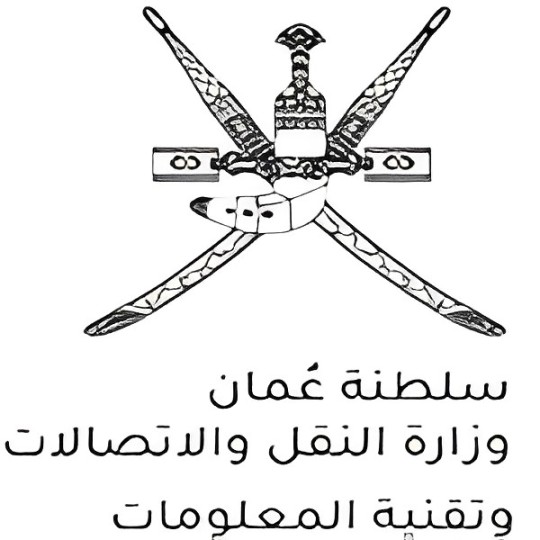+968 9596 3381
Phone Number
[email protected]
Email Address
Mon - Thu: 8:00 - 5:00
Online store always open
Phone Number
Email Address
Online store always open
WhatsApp Us Today
Drop Us an Email Today
Google Map Location
Saturday to Thursday

Looking to start a business in Oman? Whether you’re a foreign investor or a local entrepreneur, securing a trade license in Oman is your essential first step. It’s the official government approval that authorizes your company to operate legally in the Sultanate—whether you’re importing goods, running a retail shop, providing consultancy, or managing a service-based enterprise.
With Vision 2040 guiding economic diversification, Oman is actively welcoming businesses across various sectors—from logistics, e-commerce, and tourism to fintech and sustainable development. The Ministry of Commerce, Industry and Investment Promotion (MoCIIP) has simplified the company formation process, offering digital registration portals like InvestEasy, reduced timelines, and even 100% foreign ownership in many sectors.
In this guide, we’ll walk you through everything you need to know about getting a trade license in Oman—from types of licenses, required documents, application process, fees, to timelines and legal structures.
A trade license is a legal document issued by the MoCIIP that allows a business to legally carry out commercial, industrial, or professional activities within Oman. Whether you’re selling goods, offering services, or manufacturing products, a trade license ensures regulatory compliance and protects you from fines or business closure.
There are three primary types:
Commercial License – For trading, retail, import/export
Industrial License – For manufacturing and production
Professional License – For service providers, consultants, and professionals (like lawyers, engineers, designers)
The license type depends on your business activity, which is categorized under the OSIC (Oman Standard Industrial Classification) code system.
Any person or entity wishing to conduct business in Oman—whether online or offline—must obtain a trade license. This includes:
Local entrepreneurs launching retail, tech, or food businesses
Foreign investors forming an LLC or opening a branch office
Freelancers offering professional services
E-commerce operators or digital service providers
Manufacturing and logistics businesses
Even if your business is registered in a Free Zone like Sohar or Duqm, you still need a trade license issued by the respective Free Zone Authority.
Most common structure for both locals and expats. Requires at least two shareholders and allows 100% foreign ownership in most sectors (as per Royal Decree 50/2019). Ideal for medium to large businesses.
A one-person company structure, available to Omani nationals and GCC residents. Now increasingly allowed for expats in certain activities.
Allows multinational companies to open an office in Oman and operate under their parent name. Requires local representation.
Common among local investors. Shared profits and responsibilities.
Issued to individuals offering services like IT consulting, legal advice, graphic design, etc.
Legal Protection: Operate your business legally without risking fines or closure.
Tax Benefits: Oman offers one of the lowest tax environments—15% corporate tax and 5% VAT.
Investor Visa Eligibility: Trade license holders can sponsor themselves and their employees.
100% Foreign Ownership: No need for a local sponsor in many sectors.
Access to Banking: Open corporate bank accounts and access loans.
Government Contracts: Eligibility to bid for public and semi-government projects.
Identify your business category and the most suitable structure (LLC, SPC, branch, etc.).
Apply for your business name through the InvestEasy portal. The name should be unique, inoffensive, and aligned with your business activity.
Time required: 1–2 working days
Required documents include:
Passport copies of all shareholders
Resident cards (for locals)
Memorandum of Association (MOA)
Lease agreement or virtual office contract
Capital declaration
Feasibility study (for certain sectors)
This is your official company registration with the Ministry of Commerce. Submit all documents online or through a registered consultant.
Time required: 3–5 working days
Get approval from the local municipality for your office location. They may inspect the site if needed.
Based on your activity, location, and company size. Fee structure detailed below.
Once approved, your license will be issued. Next, register for corporate tax and VAT (if applicable), and get a Chamber of Commerce certificate.
Valid passport copies of shareholders
Resident card (for Omanis or GCC nationals)
Trade name certificate
Lease agreement or tenancy contract
MOA and AOA (Memorandum and Articles of Association)
Feasibility report (if required)
Capital deposit letter from a local bank (for some sectors)
Foreign documents must be translated into Arabic and notarized.
| Item | Estimated Cost (OMR) |
|---|---|
| Trade Name Reservation | 10–20 |
| MOA Drafting & Notarization | 50–150 |
| Commercial Registration (CR) Fee | 100–500 |
| Municipality License | 20–100 |
| Annual Trade License Fee | 150–1,000+ |
| Virtual Office or Lease | 500–5,000/year |
| PRO / Legal Consultant (optional) | 200–1,000+ |
Total Estimated Cost: OMR 500–3,500 (for most small to mid-sized businesses)
| Stage | Estimated Duration |
|---|---|
| Trade Name Approval | 1–2 days |
| CR & License Application | 3–5 days |
| Municipality & Tax Registration | 2–3 days |
Total Time: 7–10 working days (with full documentation)
Using professional services like SetupInOman can cut down time further.
Trade licenses in Oman are typically valid for 1 year and must be renewed annually. Renewal requires:
Updated lease agreement
Payment of renewal fees
Compliance with Omanization targets (if applicable)
Valid tax and Chamber of Commerce certificates
Late renewal may incur penalties or license suspension.
| Factor | Free Zone | Mainland |
|---|---|---|
| Ownership | 100% Foreign Ownership | 100% in most sectors |
| Tax Benefits | Up to 10 years tax-free | Standard 15% corporate tax |
| Activity Scope | Mostly exports & B2B | Full domestic access |
| Setup Cost | Often lower | May be higher |
| Office Space | Flexibility with virtual | Requires physical lease |
Free Zones like Sohar, Salalah, and Duqm are ideal for export-oriented businesses, while mainland licensing is better for retail, service, and domestic trade.
Choosing the wrong activity code (OSIC) for your license
Not notarizing or translating foreign documents
Skipping municipality approvals
Using residential addresses instead of approved commercial ones
Ignoring Omanization requirements for hiring locals
Professional business setup firms in Oman streamline the process. Their services often include:
Trade name reservation
CR and license application
MOA drafting and notarization
Office lease or virtual address
Bank account setup guidance
Visa processing for investors and employees
They ensure that your application is error-free and approved quickly—saving you time, money, and hassle.
For certain business categories, especially LLCs, companies are required to employ a minimum number of Omani nationals. These percentages vary by sector:
Retail & Wholesale: 20%
Real Estate & Finance: 35%
Logistics & Transport: 10%
Failure to meet Omanization quotas can result in license suspension or fines. It’s crucial to plan your workforce accordingly.
Securing a trade license in Oman is a crucial step to launching your business legally and successfully. With the right legal structure, complete documentation, and proper guidance, the process can be fast, affordable, and straightforward.
Oman’s business environment is welcoming and increasingly liberalized, with foreign ownership allowed in most sectors and investor-friendly tax policies. Whether you’re opening a boutique, launching an e-commerce site, or expanding into GCC markets, Oman offers a solid platform to grow.
Ready to start your business in Oman? Make sure you get the right trade license—and do it the right way.
1. How long does it take to get a trade license in Oman?
Generally, 7–10 working days if all documents are in order.
2. Can a foreigner own 100% of a business in Oman?
Yes, in most sectors and especially in Free Zones. Royal Decree 50/2019 removed many local ownership requirements.
3. What’s the cost of a trade license in Oman?
Costs range from OMR 500–3,500, depending on the business type, office space, and additional services.
4. Do I need a physical office to get a license?
Yes. You must have a commercial address or lease agreement. Virtual offices may be accepted in some zones.
5. What taxes apply after getting the license?
Oman applies 15% corporate tax and 5% VAT. Some exemptions apply to small businesses and Free Zone entities.




The documentation required depends on the legal entity and the nature of the shareholders (individual vs. corporate).
For Individual Foreign Investors:
Passport copy of all shareholders.
Passport copy of the proposed manager.
Proposed company name options.
A list of proposed business activities.
A completed application form.
A signed lease agreement for a physical office or a virtual office address.
For Foreign Corporate Investors (Branch Office):
Authenticated and translated Memorandum and Articles of Association of the parent company.
Certificate of Incorporation of the parent company.
Board Resolution from the parent company authorizing the establishment of a branch in Oman.
Passport copy of the branch manager.
Power of Attorney for the representative in Oman.
1. No Minimum Capital (with exceptions): For a standard Limited Liability Company (LLC) in most sectors, there is no longer a minimum capital requirement. However, certain activities, such as general trading, tourism, or industrial projects, may have a specific, higher paid-up capital requirement, so it is essential to confirm this in advance.
2. 100% Foreign Ownership: The Foreign Capital Investment Law (FCIL) guarantees 100% foreign ownership in most industries, eliminating the need for a local Omani partner for most business activities.
3. The Role of the “Invest Easy” Portal: While the portal is a fantastic tool, navigating its requirements, securing approvals, and submitting documents correctly can be complex, especially if you are not familiar with the Omani legal system.
4. The Cost of a Trade License: The cost includes government registration fees (which vary based on company grade), notarization fees, OCCI registration, and professional service fees. A standard CR for a mainland company can range from OMR 150 to OMR 500 in government fees alone.
Obtaining your Commercial Registration is the most critical step in establishing a business in Oman. While the “Invest Easy” portal has simplified the process, a single error or a missing document can lead to significant delays.
Our team at Setup in Oman specializes in managing this entire process for foreign investors. Our comprehensive services include:
Activity and Feasibility Analysis: We help you choose the right business activities and company structure.
Document Preparation: We handle the drafting and notarization of all legal documents.
Full Application Management: We manage the entire process on your behalf, ensuring all applications are accurate and submitted efficiently.
Corporate Bank Account: We facilitate the opening of your company’s corporate bank account once the CR is issued.
PRO Services & Investor Visas: We manage all post-registration formalities, including your Investor Visa and ongoing compliance.
Contact us today to ensure your business is established correctly and efficiently, allowing you to focus on your core operations.





Contact us today to ensure your business is established correctly and efficiently, allowing you to focus on your core operations.
Annual Return: All companies, including LLCs, must file an annual return with the Ministry of Commerce, Industry, and Investment Promotion (MoCIIP) within six months of the financial year end. This includes audited financial statements.
Tax Filings: All companies must register for tax with the Oman Tax Authority (OTA). Corporate tax returns must be filed annually by April 30th. VAT returns are filed quarterly (if the company exceeds the OMR 38,500 threshold).
Trade License Renewal: The CR must be renewed annually via the “Invest Easy” portal. The process requires a valid lease agreement and payment of renewal fees.
Types of Legal Structures (LLC vs. Branch Office):
LLC: The most common and flexible structure. It provides limited liability, which protects the parent company from the subsidiary’s debts. It can be 100% foreign-owned in many sectors.
Branch Office: An extension of the parent company, not a separate legal entity. The parent company is fully liable for all of the branch’s debts and obligations. A branch office is ideal for foreign companies looking to maintain direct control and consistent branding, and it can bid for government contracts.
Representative Office: Strictly for market research and marketing. It cannot engage in commercial activities or generate revenue.
Intellectual Property (IP) Protection:
Oman’s IP law is robust. Trademarks, copyrights, and patents can be registered with the Intellectual Property Department at MoCIIP.
Trademark Registration Process: The process involves filing an application, examination, publication in the Official Gazette (for a 60-day opposition period), and finally, registration. Trademarks are protected for 10 years and are renewable.
New FAQs (Key findings):
Hiring Expats: Foreign-owned companies can hire expatriate employees, but they must comply with Omanization quotas (which vary) and obtain a work permit and visa from the Ministry of Labour.
Virtual Office: A virtual office address is permissible for a mainland CR for certain business activities (primarily service-based and remote businesses). It’s a cost-effective alternative to a physical office.
Bank Account: A corporate bank account is a prerequisite for a CR. The process is straightforward with the correct documentation.
Company Name: The name must be unique and can be reserved via the “Invest Easy” portal.
I have all the necessary information to create the new sections and FAQs, ensuring they are accurate, detailed, and non-repetitive. The content will maintain the high quality and format of previous responses, and will strategically highlight the value of professional services in navigating these complex issues.### More Sections: Post-Registration and Legal Structures
Beyond obtaining your Commercial Registration (CR), a successful business setup in Oman requires a clear understanding of ongoing compliance, available legal structures, and the protection of your intellectual property. These sections provide critical information for the long-term success and sustainability of your business.
Obtaining your Commercial Registration is the first step; maintaining it is an ongoing obligation. Staying compliant with Omani regulations is crucial to avoid fines, legal penalties, and operational disruptions.
Key Annual Compliance Requirements:
Annual Return: Every company in Oman, including Limited Liability Companies (LLCs), must file an annual return with the Ministry of Commerce, Industry, and Investment Promotion (MoCIIP) within six months of its financial year-end. This filing must include your audited financial statements.
Tax Filings: Your company must be registered with the Oman Tax Authority (OTA). You will be required to file:
An annual corporate tax return.
Quarterly VAT returns if your annual revenue exceeds the taxable threshold of OMR 38,500.
Commercial Registration Renewal: Your CR is valid for a set period (usually one year) and must be renewed on time via the “Invest Easy” portal. The renewal requires a valid office lease agreement and payment of the government renewal fee.
Labor Law Compliance: Companies must adhere to Omani labor laws, including specific Omanisation quotas for hiring local employees.
How Setup in Oman Helps: Our PRO Services are designed to manage all your annual compliance needs. From preparing and submitting audited financial statements to handling all renewals and regulatory filings, we ensure your business remains in good standing with all government authorities.
While an LLC is the most common legal structure for foreign investors, other options may be better suited for your business model. Choosing the right legal structure is a long-term strategic decision.
Limited Liability Company (LLC): This is the most popular choice for foreign investors due to its flexibility and the protection it offers. The liability of shareholders is limited to their capital contributions, and the company is a separate legal entity. It can be 100% foreign-owned in most sectors.
Branch Office: A branch is an extension of a foreign parent company. It is not a separate legal entity, and the parent company is fully liable for all of the branch’s debts and obligations. This structure is ideal for foreign companies that want to maintain centralized control and brand consistency, or for those bidding on government contracts that require a registered presence.
Representative Office: This structure is strictly limited to market research, promotion, and gathering information. It cannot engage in any commercial activity or generate revenue. It is suited for companies that are testing the Omani market before committing to a full commercial setup.
How Setup in Oman Helps: We provide expert consultation to help you evaluate the best legal structure for your specific business goals, risk tolerance, and long-term strategy, ensuring you build a solid foundation from the start.
Protecting your brand identity, trademarks, and innovations is a critical step for any business. Oman’s legal framework provides strong protections for intellectual property (IP) rights.
Trademark Registration: Oman’s trademark law allows you to protect your company name, logo, and brand identity. The process involves filing an application with the Intellectual Property Department at MoCIIP, an examination period, and a public opposition period before the trademark is officially registered. A registered trademark is valid for 10 years and is renewable.
Patent and Copyright: The laws also protect patents and copyrights, ensuring that your innovations, software, and creative works cannot be used without your permission. Registering these provides you with the legal means to take action against infringement.
How Setup in Oman Helps: Our legal experts provide consultation and manage the entire Intellectual Property registration process on your behalf, from filing all necessary documents to liaising with the authorities, ensuring your business assets are fully protected.
Fill out our quick and easy contact form below. Briefly tell us about your vision and goals, and we’ll be in touch shortly to discuss a personalized plan for your success.
Al-Khuwair, Muscat, Sultanate of Oman